What are Intelligence Reports?
Decarbonisation and Compliance: Assessing the impact of the Climate Change Act on South Africa’s extractives industry
The Climate Change Act establishes a regulatory framework for decarbonisation in South Africa’s extractives sector, aligning with Paris Agreement commitments. Key provisions include sector-specific emissions reduction targets, carbon budgets, and mandatory monitoring...
Decentralising the Just Energy Transition
With nearly 86% of its carbon dioxide (CO2) coming from coal, South Africa is one of the world’s most coal-dependent countries. Additionally, it produces nearly a quarter of the continent’s total carbon emissions. Its economy is highly dependent on agriculture and...
Advancing natural resource good governance in Southern Africa
The International Energy Agency’s Medium-Term Gas Outlook in late 2023 notes that “Africa accounted for nearly 40% of new natural gas discoveries globally in the past decade, mainly in Mozambique, Mauritania, Senegal, and Tanzania. However, socio-political instability...
Intelligence Reports
What problem do we solve with IRs?
Intelligence Reports are published monthly to propel the private sector towards becoming development partners rather than mere ‘policy-takers’ or ‘rent extractors’. We aid private sector decision-making towards enhancing Environmental, Social and Governance (ESG) performance. It is our considered view that businesses which mainstream ESG principles authentically into their core business strategies will do better than their competitors in the long run. This strengthens our commitment at Good Governance Africa (GGA) to promote good governance and the rule of law across the continent.
What is the product?
Intelligence Reports are a unique product offering in the risk analysis and intelligence space. We provide strategic guidance through high-quality research, with interactive visualization of data, for investment decision-making purposes. Our evidence-based research strongly suggests that onboarding authentic ESG principles into core business strategies will strengthen the bottom line. The product also encourages firms to create latent impact by engaging in broader societal institution-building that creates an enabling environment for other businesses to flourish.
The product is fundamentally different from its mainstream risk and intelligence competitors in that it is specifically orientated towards bridging private and public sector governance for the benefit of the company, governments and citizens.
Each edition of the Intelligence Report is conceptually framed by current global events that seek to tackle environmental, social and governance (ESG) issues across multiple industries and in varying contexts. For instance, our first report examined the risk of greenwashing in light of growing global commitment to taking ESG performance seriously, especially in financial markets. In other words, we demonstrated that future access to capital, along with business performance, is increasingly dependent on smart, authentic commitments to ESG principles. Our next edition will focus on Zambia’s economic opportunities given its copper endowment and how this might be harnessed through ESG-infused development planning that simultaneously addresses the country’s debt sustainability and transparency challenges. This will speak directly to private sector players that are looking for new investment opportunities on the continent.
Example of its capabilities?
The Intelligence Report is essentially powered by our proprietary Africa Digital Databank (ADD). Our analysts extract the relevant data for the issue at hand and visualize it for our target audience in an interactive, compelling manner. Even without reading the substantiating text, an investment analyst or C-suite executive should immediately be able to detect the implications of what is demonstrated for their business strategy. The product is currently available in pdf form but will also, in future, be available as an emag or online portal for our subscribers.











